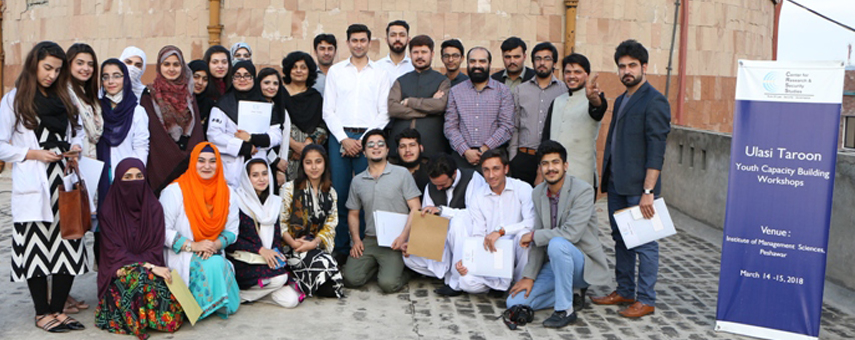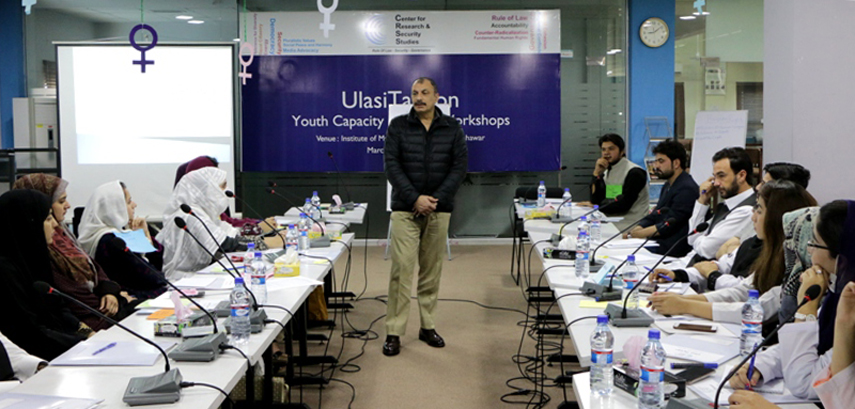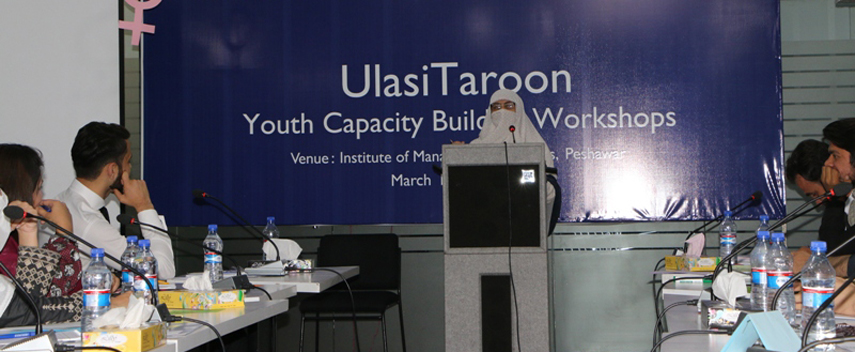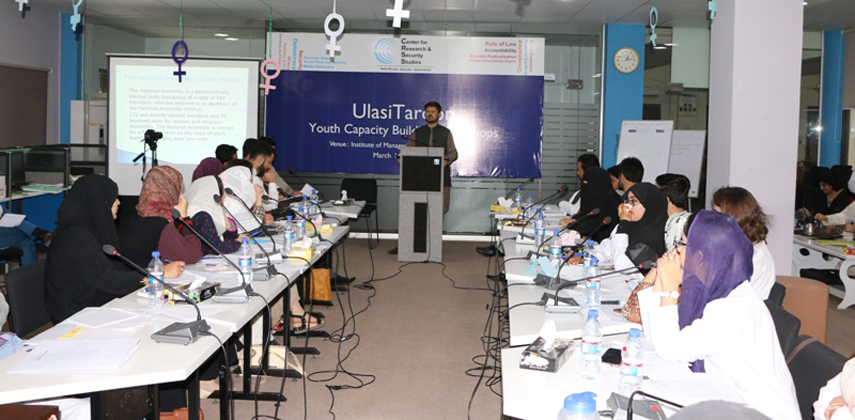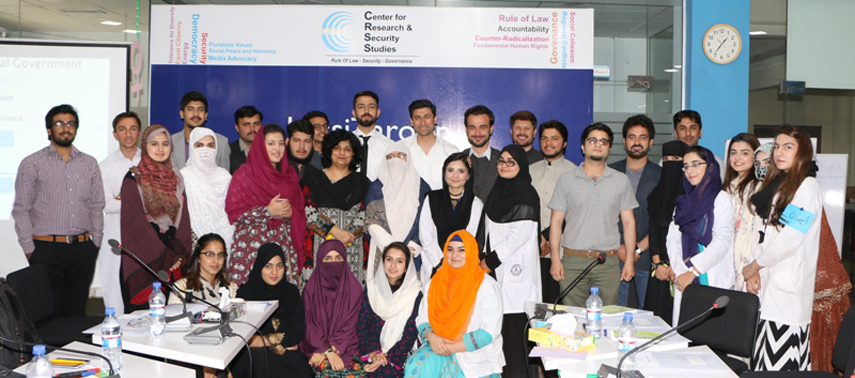Human rights are the basic rights and freedoms that belong to every person in the world, from birth until death. Cultivating youth in the core constitutional values is the key recipe for social peace and harmony. Rule of law is primary condition for socio-political and economic progress, and democratic development of the country. The citizens’ active participation in the democratic process requires awareness and education on their democratic roles and responsibilities.
There were the remarks made by the speakers during the third round of Ulasi Taroon, Youth Capacity Building Workshops organized by the Center for Research and Security Studies (CRSS) at Institute of Management Sciences, Peshawar from March 14-15, 2018.
Mr. Muhammad Ali Babakhel, Deputy Inspector General of Police (DIG), KP said that rule of law is an endeavor to bring order; it’s an individual endeavor but collective responsibility. Rule of law is directly proportional to the respect for core constitutional values – critical to social peace and cohesion, the more the respect, the better the rule of law. Consultation, tolerance, respect and equality (before law) are the basic essences for rule of law besides awareness and education on law of the land and citizens’ rights and responsibilities. This also includes education of the implementing authorities on laws and policies. The democratic development and socio-political and economic progress of the country are not possible without adherence to rule of law and its indiscriminate application on everyone. Rule of law cannot be upheld unless the policy making is participatory and inclusive whereas the political will and institutional capacity are equally important. We need to push the youth to realism; moving them away from the idealism. The volunteerism is the missing link in the society which is also a very critical element of rule of law.
Mrs. Amna Sardar, Member of KP Assembly and Secretary Women Parliamentary Caucus said that democracy always suffers at the hands of clash between institutions. The sustainability of policies is direly needed to provide any long term effect and make a positive impact. We must understand that the primary role of legislators is law making, thus they should not be distracted from their prime responsibility; involving into the issues at the local level. She called for self-accountability of the public representative to hold themselves accountable before the public.
She added that the democratic participation of citizens requires awareness and education on their democratic roles and responsibilities. The students should ask questions and build critical thinking skills. But the criticism should not be for the sake of it but effective and relevant. There are very fewer spaces for informal discussions and interactions. We can create awareness on the issues critical to social cohesion and peace not only through the formal education but also through the spaces for informal education/ interactions like the ones provided by Center for Research and Security Studies (CRSS).
Speaking on the fundamental human rights available to the citizens, Ms. Shagufta Khalique, Educationist said that human rights are all those entitlements of the humans that they get with birth. We are all born with basic human rights; born free and equal in dignity and rights. And Universal Declaration of Human Rights (UDHR) clearly define these entitlements. They are mandatory for all the member states. Human rights are universal, indivisible and interdependent. There is a huge onus on youth to promote respect for fundamental human rights enshrined in the constitution and UDHR. She said that respecting differences and celebrating diversity are prerequisites for a socially cohesive society.
Mr. Imtiaz Gul, Executive Director, CRSS said that unfortunately, the element of critical thinking is largely missing in our society. The capacity building workshops as part of Ulasi Taroon initiative are an attempt to sensitize young future leaders on the need for critical thinking, for judging life and thoughts of others with respect and tolerance. Building critical thinking and processing of information skills will help them dissect and analyze issues effectively.
Mr. Malik Mustafa, Team Leader/ Manager Programs, CRSS said in his opening remarks that the deviation from constitution, and giving up on rule of law not only lead to the conflict and fragility but also destroy the social fabric of the society. As future leaders, the youth should be considerate of the criticality of compliance with the core constitutional values as a recipe for social peace and harmony in the society.
The participating students underpinned the need to promote and ensure equal participation and inclusion in all segments on the society as an approach to gender mainstreaming.
Ulasi Taroon is a counter radicalization initiative of CRSS that aims to address the radicalization challenges, extremist ideologies and foster social cohesion through a discourse anchored in the core constitutional values which are fundamentally essential prerequisites for social peace and harmony. The endeavor aims to cultivate and sensitize the youth – in the universities across KP and FATA – in the core values in the Pakistani constitution and our social contract. It’s an attempt to highlight the criticality of abiding by these ideals – such as adherence to rule of law, primacy and sanctity of constitution, equal citizenry, responsible citizenship, respect for fundamental human rights, tolerance for diversity and different opinions, inclusive democracy and good governance – as a measure of fostering social cohesion and peaceful co-existence.

